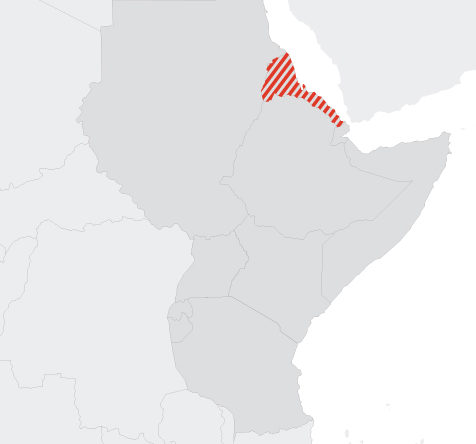PRESS RELEASE – The Eritrean government should seize the opportunity of its human rights review, today at the UN Human Rights Council (“the Council”), to finally commit to addressing the grave human rights violations identified by independent observers.Eritrea’s Universal Periodic Review (UPR) comes a month after it took a seat within the UN’s top human rights body. Council membership triggers an enhanced obligation to cooperate.
“For years, Eritrea has offered but denial in response to findings of human rights violations, including those that may amount to crimes against humanity,” said Hassan Shire, Executive Director, DefendDefenders. “It is high time for the government to change course and engage with the UN with a view to improving its abysmal record.”
Since 2012, independent human rights experts, including a UN Special Rapporteur and a Commission of Inquiry, concluded that crimes, including enslavement, imprisonment, enforced disappearances, torture, inhumane acts, persecution, rape and murder, had been committed in Eritrea since 1991. Year after year, the Council condemned, and reiterated the need for accountability for, these acts.[1] However, Eritrea merely dismissed these findings. In October 2018, despite its poor human rights record, Eritrea was elected to the Council for the 2019-2021 period, in a non-competitive election process.[2]
“Eritrea’s UPR is taking place as the country starts a three-year term as a Council member,” said Nicolas Agostini, representative to the UN for DefendDefenders. “This status comes with responsibilities, including an obligation to cooperate with the UN human rights system and to address key human rights issues.”
Ahead of today’s UPR, DefendDefenders submitted a report addressing violations of freedoms of expression, association and peaceful assembly, the situation of human rights defenders, and Eritrea’s failure to meaningfully engage with international and regional human rights mechanisms.[3]
The UPR is a process set up by the Human Rights Council, the UN’s principal human rights body. The human rights record of every UN member state is reviewed every four-and-a-half to five years, in Geneva, Switzerland, a process during which the government of the state under review receives recommendations made by its peers.NGOs can participate in the process by submitting alternative reports and engaging in advocacy at the national and UN levels.
See the full press release.

